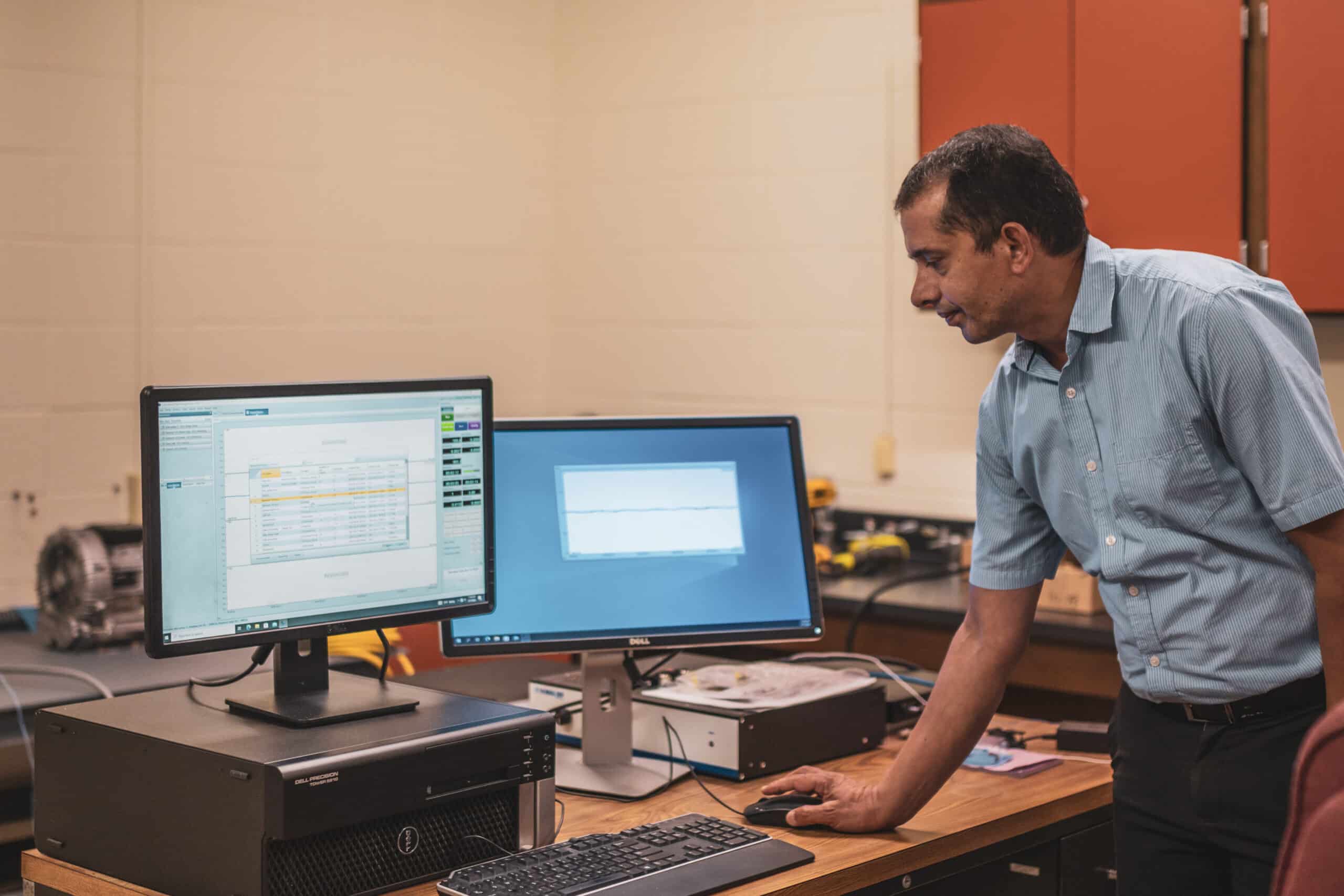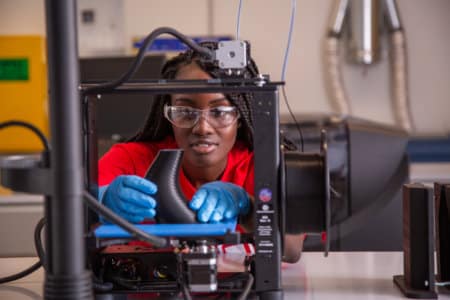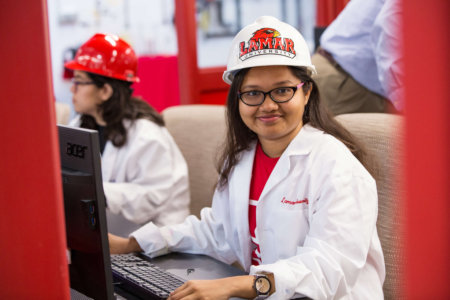“The technology job market is ever-evolving and seeking recruits who have key skills that will help them integrate faster into their new jobs.”
That’s what Dr Mansour Karkoub, Department Chair of Lamar University’s (LU) Mechanical Engineering Department has observed in recent years. Indeed, smart factories are already appearing everywhere in Texas itself — all of which are equipped with advanced sensors, embedded software, and robotics that collect and analyse data to ensure better decision-making.
This calls for a new legion of graduates who are Industry 4.0 ready for increased automation, predictive maintenance and efficiency. LU’s answer? Infusing additional robotics, mechatronics, automation and computation-based science in graduate programmes.
As one of the most affordable options in the US — engineering at LU ranks third in the US and first in Texas for return on investment — many students are vying for a spot at the institution. In fact, most graduate students are offered an out-of-state tuition waiver on top of a competitive scholarship valued at US$1,000 per year.

There is no shortage of experts and active researchers in mechanical engineering doubling as professors at LU. Source: Lamar University
With this, students only need to pay in-state tuition — cutting their total costs by a significant amount. It pays off: LU mechanical engineering graduates earn the highest median salary in the state of Texas.
There is no shortage of experts and active researchers in mechanical engineering doubling as professors at LU. Source: Lamar University
A modern approach to mechanical engineering
Mechanical Engineering at LU offers a variety of graduate programmes. Its Master of Engineering programme can be undertaken with or without a thesis, and students can choose one of the following concentrations in Materials and Mechanics, Thermo-Fluid Design, or Robotics, Dynamics, and Control. A Doctor of Engineering programme is available to pursue, as well.
On top of teaching, mechanical engineering faculty at LU are active researchers in and contributors to additive manufacturing, health-monitoring and vibration engineering, energy engineering, robotics, automation and turbomachinery, among others. They combine on-the-ground knowledge with theoretical models, giving their students a distinct edge in their future careers.
That’s not to distract from the regular contributions made by external parties, as well. “We make sure our curriculum is in sync with the job market by involving employers, alumni, and technology trendsetters in the upkeeping of the skill sets infused in our curriculum,” Dr Karkoub says.

Lamar University is looking to build the ideal Industry 4.0-ready mechanical engineering graduate. Source: Lamar University
A major draw for students at LU is the opportunity to gain hands-on work experience that gives them first-hand exposure to the very industry they hope to enter. Many work with high-profile companies on impactful projects. Graduate Mohamed Youssef, for example, had the chance to contribute to the building of new smart production lines for future Tesla car models.
Alongside this, students have access to a wide range of labs and on-campus resources to enhance their learning experience. “In 2023 alone, the mechanical engineering department invested more than US$1 million to upgrade its current labs and create new ones such as the Health-monitoring and Vibration Engineering Lab, 3D Printing and Robotics Lab, Automation Lab, and a state-of-the-art Computer Lab,” adds Dr Karkoub. “This shows the commitment of the LU leadership in providing top-notch education at an affordable cost.”
Additional coursework in robotics, automation, mechatronics, artificial intelligence, sensors, programming, data science, entrepreneurship and environmental engineering have also been included. The full range of mechanical engineering software is taught as well, including SolidWorks, Autodesk Fusion 360, ANSY, Fluent, Matlab, Python, TIA-Portal, Rockwell RSLogic and more.

Gain the skills and knowledge you need to succeed in mechanical engineering. Source: Lamar University
All of this gives LU mechanical engineering graduate degree holders every advantage in entering the job market.
An unparalleled wave of student support
All mechanical engineering graduate programmes at LU require a Bachelor of Science in the subject. For graduates with this qualification, every form of support is given to ensure their success. International students in particular are given unparalleled experiences to widen their chances of finding work in the field, both in the US and internationally.
“All programmes and activities are intended to help enrich the experiences of international students and scholars on campus and to help expand global engagement for students, faculty, and staff at LU,” explains Dr. Mustapha Jourdini, who is a former F-1 student from Morocco. “The Office of International Education and Services (OIES) is the institution’s primary place for non-immigrant federal regulations pertaining to F and J visas.”

Form powerful networks with peers and impactful organisations in the US through internships. Source: Lamar University
To give them a competitive edge in the job market, international students are exposed to a range of different activities and initiatives. Outside of helping them build their soft skills, this allows them to create a powerful network — an undeniable asset in securing future career opportunities.
“We proudly serve our diverse international students in a variety of ways, including with cultural adjustment, visa status maintenance, employment on or off campus, personal counselling, immigration workshops, advocacy with LU stakeholders, and through engaging social, educational and cultural co-curricular programs and events,” says Dr. Jourdini.
It’s the perfect balance between learning to navigate advanced technology, gaining hands-on experience, using software and developing soft skills. The result is the transformation of students into ideal mechanical engineering job candidates – ready for Industry 4.0 and beyond.
Follow LU Engineering on Twitter, Facebook, Instagram, LinkedIn and YouTube.














